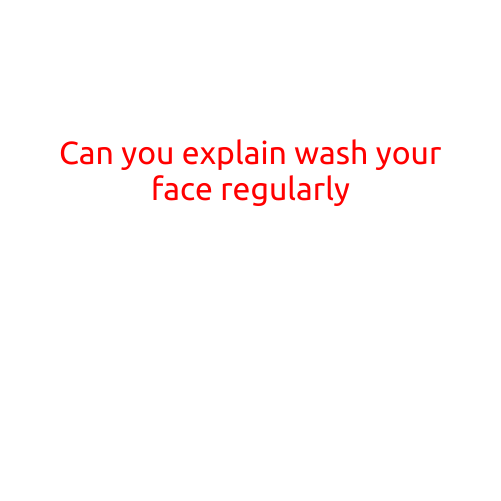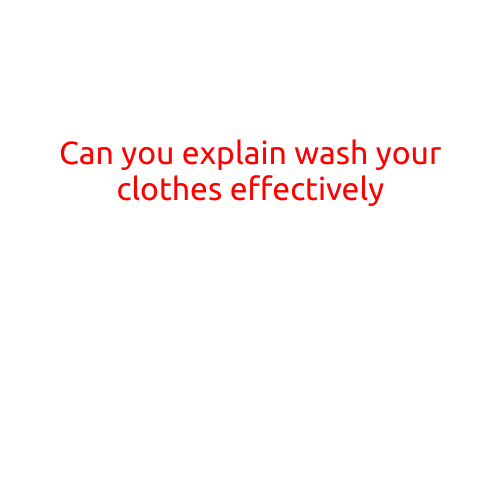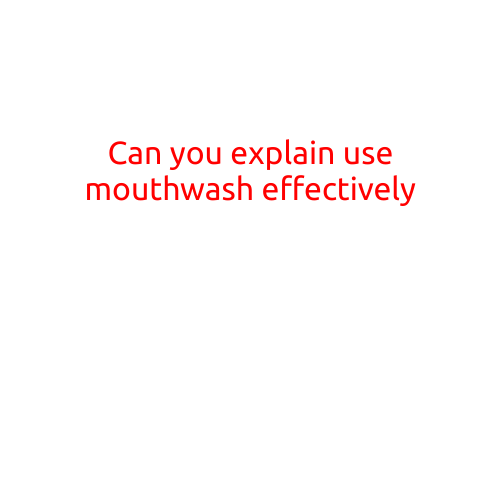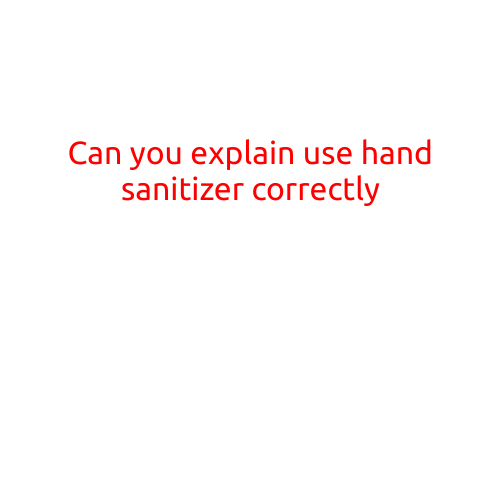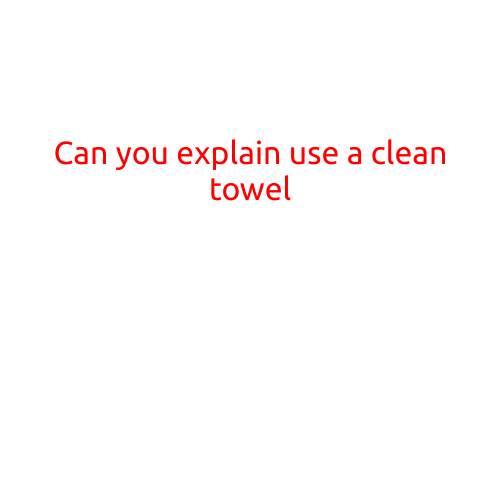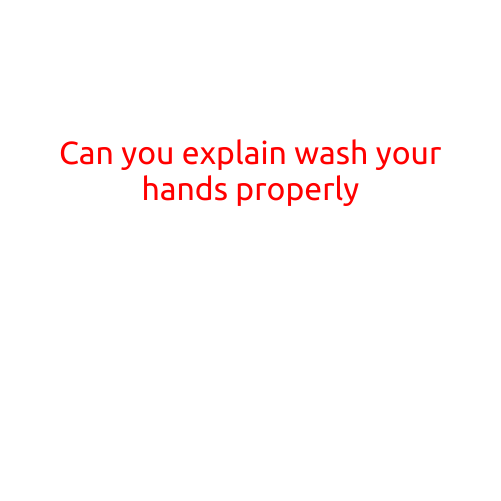
Can You Explain: Wash Your Hands Properly?
Proper hand hygiene is one of the most effective ways to prevent the spread of illnesses and infections. Despite its importance, many of us still don’t wash our hands the right way. In this article, we’ll break down the correct steps to wash your hands properly, and provide some helpful tips to keep your hands clean and healthy.
The Importance of Hand Hygiene
Hand hygiene is a crucial aspect of preventing the spread of illnesses. According to the World Health Organization (WHO), hand hygiene is the most effective way to prevent healthcare-associated infections (HAIs). In fact, studies have shown that proper hand hygiene can reduce HAI rates by up to 50%.
The Proper Way to Wash Your Hands
Washing your hands properly is a simple process that requires some effort. Here’s a step-by-step guide:
- Wet your hands: Start by wetting your hands under running water. This will help loosen up any dirt, bacteria, or viruses on your skin.
- Apply soap: Apply enough soap to cover your hands. You can use a liquid soap or a bar soap. Make sure to choose a soap that is gentle on your skin and effective against bacteria and viruses.
- Lather the soap: Rub your hands together to create a lather. Make sure to get the soap all over your hands, including the backs of your hands, between your fingers, and under your nails.
- Scrub all surfaces: Scrub all surfaces of your hands, including:
- Palms
- Backs
- Fingers
- Thumbs
- Wrists
- Between fingers
- Under nails
- Rinse thoroughly: Rinse your hands thoroughly with running water to remove all soap residue.
- Dry your hands: Dry your hands completely with a clean towel or air dryer.
Additional Tips for Proper Hand Hygiene
In addition to following the proper hand washing steps, here are some additional tips to keep your hands clean and healthy:
- Wash your hands frequently: Wash your hands frequently, especially:
- Before eating or preparing food
- After using the bathroom
- After blowing your nose, coughing, or sneezing
- After touching animals, their food or waste
- After touching garbage or anything that may have come into contact with germs
- Use an alcohol-based hand sanitizer: If soap and water are not available, use an alcohol-based hand sanitizer that contains at least 60% alcohol.
- Avoid touching your face: Try to avoid touching your face, especially your eyes, nose, and mouth, as these areas are prone to infection.
- Keep your fingernails short: Keeping your fingernails short will help prevent dirt and bacteria from accumulating under your nails.
Conclusion
Proper hand hygiene is essential for preventing the spread of illnesses and infections. By following the simple steps outlined above and practicing good hand hygiene habits, you can help keep yourself and those around you healthy. Remember, washing your hands correctly is one of the most effective ways to prevent illness, so make it a habit to wash your hands frequently and properly!
